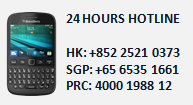USA

New bunkering requirements arising from Marpol
Masters will be required to comply with a specific sampling process and will need to obtain a bunker receipt containing certain details and a specific declaration from the supplier.
While fuel oil quality is now mainly a commercial matter between ship operators and suppliers, it will also become a statutory matter when Annex VI of Marpol 73/78 - Regulations for the Prevention of Air Pollution from Ships - enters into force on 19 May 2005. Marpol Annex VI, Regulation 18, specifically requires that fuel oil supplied to ships must be free from inorganic acids or chemical wastes that could; jeopardise the safety of the ship, harm ships' personnel, or contribute to additional air pollution. It is also a requirement that any fuel oil for combustion purposes delivered to and used onboard shall be recorded by means of a Bunker Delivery Note (BDN). This implies that a BDN shall be presented for every delivery and every grade. BDNs are required to contain all the following information:
- Name and IMO number of receiving ship;
- Bunkering port;
- Date of commencement of bunkering;
- Name, address and telephone number of marine fuel oil supplier;
- Product name;
- Quantity (metric tonnes);
- Density at 15°C (kg/m3);
- Sulphur content (% m/m);
- A declaration signed by the fuel oil supplier's representative certifying that the fuel oil supplied complies with Regulation 14 (the fuel supplied has a sulphur level below 4.5%) and Regulation 18.
The BDNs are to be retained on board for a period of three years after the fuel oil has been delivered, readily available for inspection at all times.
Regulation 18 requires every BDN to be accompanied by a representative sample of the fuel oil delivered, taking into account the guidelines in Resolution MEPC.96(47).The sample is to be sealed and signed by the supplier's representative and the master or officer in charge of the bunker operation on completion of bunkering. Samples should be retained under the ship's control until the fuel oil is substantially consumed, but in any case for a period of not less than 12 months from the time of delivery.The ship's Master should develop and maintain a system to keep track of the retained samples. Further, Resolution MEPC.96(47) recommends that the seal number of the associated Marpol Annex VI fuel representative sample is included in the BDN for cross-reference purposes.
Resolution MEPC.96(47) further specifies that the Marpol fuel sample is to be obtained at the receiving ship's inlet bunker manifold and drawn continuously throughout the bunker delivery period. Sampling methods are clarified as manual valve-setting continuous-drip sampler, time-proportional automatic sampler, or as flow-proportional automatic sampler. The guidelines also specify that sample bottle labels are to contain the following information:
- Location at which, and the method by which, the sample was drawn;
- Date of commencement of delivery;
- Name of bunker tanker/bunker installation;
- Name and IMO number of the receiving ship;
- Signatures and names of the supplier's representative and the ship's representative;
- Details of the seal identification;
- Bunker grade.
The retained samples are to be kept in a safe storage location, outside the ship's accommodation and where personnel would not be exposed to vapours which may be released from the samples. Further, the sample should be stored in a sheltered location where it will not be subject to elevated temperatures.
On tankers, the cargo sample locker would be considered an adequate storage space. Alternatively, a suitable locker (with opening ensuring adequate air flow) in an adequately ventilated area of the engine room located at a safe distance from ignition sources and hot surfaces may be considered.
Marpol Annex VI also contains instruments to encourage port states to ensure that bunker suppliers fulfil their obligations. Port states must:
- Maintain a register of local suppliers of fuel oil;
- Ensure local suppliers provide the BDN and sample, certified by the fuel oil supplier that the fuel oil meets the requirements of Regulations 14 and 18;
- Require local suppliers to retain a copy of the BDN for at least three years for inspection and verification by the port state as necessary;
- Take action as appropriate against fuel oil suppliers that have been found to deliver fuel oil that does not comply with that stated on the BDN;
- Inform the flag administration of any ship receiving fuel oil found to be non-compliant with the requirements of Regulations 14 or 18;
- Inform IMO for transmission to Parties to the Protocol of 1997 of all cases where fuel oil suppliers have failed to meet the requirements specified in Regulations 14 or 18.
In order to assist ships in ensuring that the operational requirements are met, it is recommended to include clauses regarding compliance with Marpol Annex VI Regulations 14 and 18 in bunker contracts and agreements with suppliers, as well as in charter parties.
Intertanko has produced 'A Guide to Bunkering of Ships for the purposes of Annex VI to Marpol' to assist ship operators in developing onboard procedures to ensure compliance with Marpol Annex VI.





